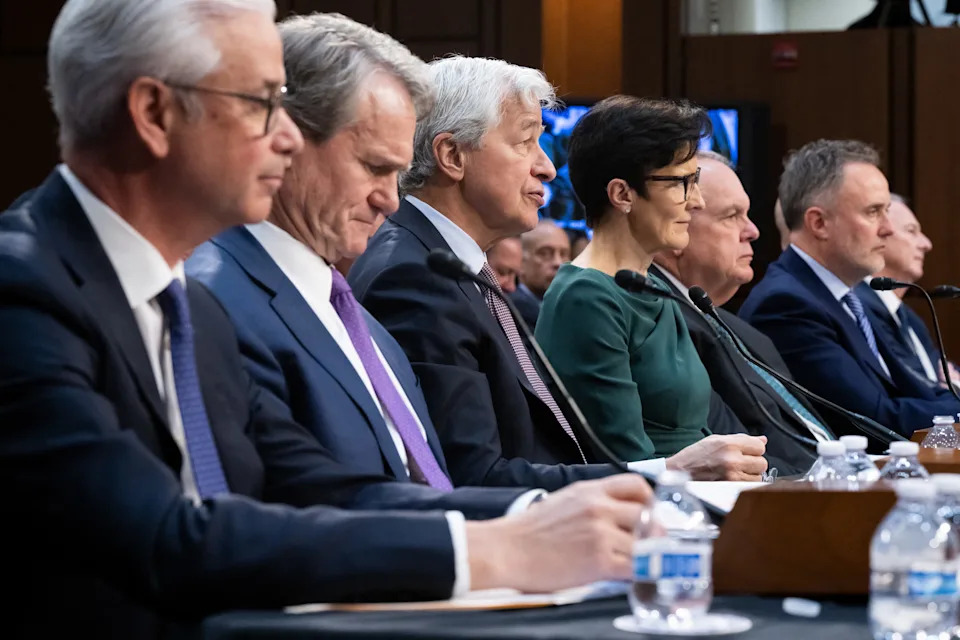
Big banks are trying to put Trump tariff tumult in their rear-view mirror
Key Points
- Optimism Replaces Gloom: The mood around major U.S. banks has shifted from pessimism to cautious optimism as they approach the new earnings season, following a challenging first quarter marked by market uncertainty and tariff-related volatility.**
- Strong Market Performance: Recent successful IPOs, mergers, and loosened capital rules by the Trump administration have bolstered the banking sector, with trading desks benefiting from market volatility.**
- Record Highs and Investor Confidence: After passing Federal Reserve stress tests, many big banks announced stock buybacks and dividends, leading to record-high stock prices for JPMorgan, Goldman Sachs, and Morgan Stanley on July 3.**
- Anticipated Earnings Beats: Analysts predict that banks like JPMorgan and Goldman Sachs may exceed previous investment banking guidance due to a strong recovery in the latter half of the quarter.**
Summary
The atmosphere surrounding the nation's largest banks has transformed from gloom to measured optimism as they head into the latest earnings season, starting with reports from JPMorgan Chase, Wells Fargo, and Citigroup. Three months ago, the sector faced uncertainty due to a dealmaking freeze and market turmoil following President Trump's "Liberation Day" tariff announcement. However, recent developments, including successful IPOs, mergers, and relaxed capital rules from the Trump administration, have revitalized the industry. Market volatility has even benefited trading desks, while stock buybacks and dividends post-Federal Reserve stress tests have driven investor enthusiasm, with JPMorgan, Goldman Sachs, and Morgan Stanley hitting record highs on July 3. Analysts are optimistic, predicting that some banks may surpass investment banking guidance, reflecting a strong recovery in the quarter's latter half. Investors are eager to hear confirmation that the challenges of April are behind and that the positive momentum will continue.
yahoo
July 14, 2025
Stocks


